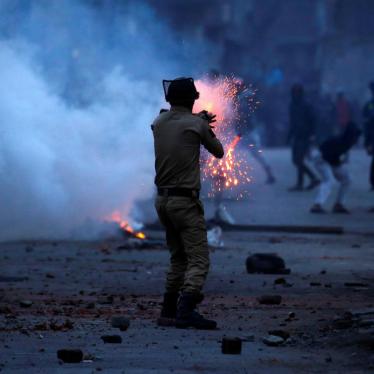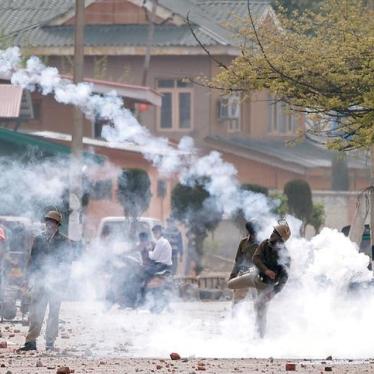Yet again, last week, people around the world had to contemplate the possibility that India and Pakistan’s seemingly unending scrap over Kashmir could lead to nuclear conflagration.
Indians were outraged after a deadly attack by Pakistan-based armed group, Jaish-e-Mohammad, on February 14 targeted a security forces convoy. In the ensuing military escalation, voices on both sides promoting human rights and temperance could be barely heard over the jeering, taunting, threats, and gloating, or the allegations of mendacity.
In all this, the Kashmiris are forgotten. A three-decade insurgency has left them squeezed between armed groups, violent protesters, and Pakistan-based campaigners who claim to speak for their rights on one side, while on the other are Indian policy makers and security forces who believe they are protecting Kashmiri citizens. What has in fact ensued is a cycle of violence where the rights of Kashmiris have been repeatedly violated – they have been victims of torture, threats, extortion, arrests, and killings. An estimated 50,000 have died, many of them civilians, while entire communities have been displaced.
This time, India’s ruling Hindu nationalist Bharatiya Janata Party and supporters, including in the media, used the attack to whip up extremist nationalist fervor. As a result, Kashmiri students and businessmen in several Indian cities were harassed or beaten up, even forcefully evicted from rented homes and dormitories. As the threat of military attacks escalated, Kashmiris scrambled to stock up on essentials. And once hostilities ensued, at least six civilians were killed in cross-border shelling at the Line of Control, the de facto international border in disputed Kashmir.
The hostilities for now have dialed down, though the bristling continues. Pakistan has taken some steps by arresting Jaish-e-Mohammad leaders, but should end its support to militant groups that commit serious rights abuses. Pakistan’s actions do not absolve India from its responsibility to end its repression in Kashmir. India’s failure to address the rights of people in Kashmir has led to increased violence in recent years. Indian authorities rejected a June 2018 United Nations report calling for justice.
To do right by Kashmiri victims and maybe also help ensure the world has one less reason to fear a nuclear war, the international community should now insist on reform to address decades of repression in Kashmir.










